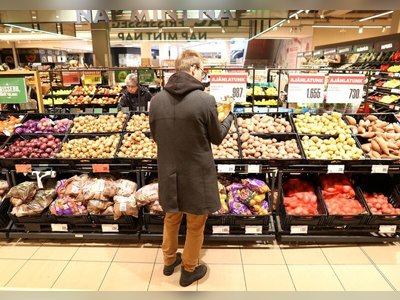New Measures Implemented to Combat Foot-and-Mouth Disease Outbreak
The national chief veterinarian announces additional restrictions to contain the spread of the disease beginning March 30.
In response to the ongoing outbreak of foot-and-mouth disease (FMD), additional measures will be implemented starting March 30, as announced by the national chief veterinarian.
The National Food Chain Safety Office (Nébih) disclosed that, as part of these measures, the organization of fairs and exhibitions featuring susceptible species will be prohibited across the entire country.
According to the official statement, it is strictly forbidden to transport susceptible animals into or out of any restricted areas, regardless of purpose, including export beyond the borders of Hungary.
In the protective and surveillance zones surrounding outbreaks in Slovakia and Hungary, susceptible animals must be kept confined until at least April 7 and are not to be allowed into pastures, pens, or enclosures.
Furthermore, animals from these areas may only be slaughtered at designated abattoirs, and strict regulations apply to the transportation of fresh meat obtained from such slaughter, prohibiting exports to other member states or third countries.
The statement also highlighted the areas classified as further restricted zones outside the protective and surveillance zones, which include the remaining parts of Győr-Moson-Sopron County and the Komárom, Tata, and Esztergom districts of Komárom-Esztergom County.
Within these areas, technological movement of susceptible animal species is permitted; however, removal from these areas is allowed solely for immediate slaughter at specified Hungarian abattoirs.
Additionally, a grazing ban will be enforced until April 9 within these areas, and restocking of wild species related to susceptible livestock is prohibited.
These measures aim to prevent the further spread of infection from the affected regions, with a significant focus on reducing the population of susceptible animals.
Authorities noted that the virus can spread via wind, which is currently considered the most likely mode of transmission in the affected region.
Although a vaccine for FMD exists, its role is limited to reducing viral shedding, and vaccinated animals must ultimately be culled, making widespread vaccination impractical.
Regaining freedom from the disease and consequently lifting trade restrictions will only be possible if all vaccinated animals are eliminated, according to the statement.
The National Food Chain Safety Office (Nébih) disclosed that, as part of these measures, the organization of fairs and exhibitions featuring susceptible species will be prohibited across the entire country.
According to the official statement, it is strictly forbidden to transport susceptible animals into or out of any restricted areas, regardless of purpose, including export beyond the borders of Hungary.
In the protective and surveillance zones surrounding outbreaks in Slovakia and Hungary, susceptible animals must be kept confined until at least April 7 and are not to be allowed into pastures, pens, or enclosures.
Furthermore, animals from these areas may only be slaughtered at designated abattoirs, and strict regulations apply to the transportation of fresh meat obtained from such slaughter, prohibiting exports to other member states or third countries.
The statement also highlighted the areas classified as further restricted zones outside the protective and surveillance zones, which include the remaining parts of Győr-Moson-Sopron County and the Komárom, Tata, and Esztergom districts of Komárom-Esztergom County.
Within these areas, technological movement of susceptible animal species is permitted; however, removal from these areas is allowed solely for immediate slaughter at specified Hungarian abattoirs.
Additionally, a grazing ban will be enforced until April 9 within these areas, and restocking of wild species related to susceptible livestock is prohibited.
These measures aim to prevent the further spread of infection from the affected regions, with a significant focus on reducing the population of susceptible animals.
Authorities noted that the virus can spread via wind, which is currently considered the most likely mode of transmission in the affected region.
Although a vaccine for FMD exists, its role is limited to reducing viral shedding, and vaccinated animals must ultimately be culled, making widespread vaccination impractical.
Regaining freedom from the disease and consequently lifting trade restrictions will only be possible if all vaccinated animals are eliminated, according to the statement.
AI Disclaimer: An advanced artificial intelligence (AI) system generated the content of this page on its own. This innovative technology conducts extensive research from a variety of reliable sources, performs rigorous fact-checking and verification, cleans up and balances biased or manipulated content, and presents a minimal factual summary that is just enough yet essential for you to function as an informed and educated citizen. Please keep in mind, however, that this system is an evolving technology, and as a result, the article may contain accidental inaccuracies or errors. We urge you to help us improve our site by reporting any inaccuracies you find using the "Contact Us" link at the bottom of this page. Your helpful feedback helps us improve our system and deliver more precise content. When you find an article of interest here, please look for the full and extensive coverage of this topic in traditional news sources, as they are written by professional journalists that we try to support, not replace. We appreciate your understanding and assistance.











